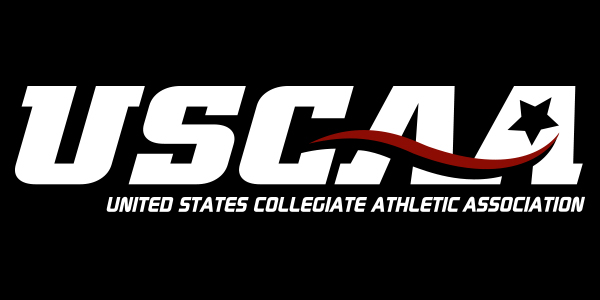College-bound
As a college-bound student, it’s understandable to have certain expectations for your college experience, especially given the way modern media, particularly social media, portrays college life. You’ve probably seen countless movies depicting the typical college experience, from Animal House to Legally Blonde to Good Will Hunting. However, it’s worth considering whether these portrayals align with your own goals for attending college. As someone who has graduated from both secular and Bible colleges, I’ve put together a list of valid reasons why you should or should not attend a Bible college.
Is the Bible Important To You?
The first reason why you should or should not attend a Bible college is quite straightforward: if you don’t find the Bible relevant or important in your life, then attending Bible college may not be the best option for you. Of course, there are always exceptions to the rule, and you may have a change of heart. After all, the Bible claims to be highly relevant to our lives; studying God’s Word can be transformational, affecting not just our beliefs but also our behaviors. As it says in Isaiah 55:11, “So shall My word be that goes forth from My mouth; It shall not return to Me void, But it shall accomplish what I please, And it shall prosper in the thing for which I sent it.” In fact, historically, many students who attend Bible colleges find their life’s calling while studying the Bible. For example, the late evangelist Billy Graham discovered his calling while attending classes at my alma mater, Trinity College of Florida (formerly the Florida Bible Institute). Graham went on to become one of the world’s most impactful evangelists, reaching millions of people with the gospel.
Parent’s Approval
Another factor to consider when deciding whether to attend a Bible college is the potential conflict that may arise with parents who are not Christians or may only be culturally Christian. These parents may not understand or support their child’s desire to attend a Bible college and pursue faith-based work. They may be more focused on their child earning a six-figure income, which they may not see as compatible with a life of ministry. However, it’s important to remember that Christians base their finances on stewardship and giving back to others. In fact, studies have shown that 80 percent of people who use the Bible regularly give to charity, compared to only 52 percent of those who do not. This is because people with a Biblical worldview see money as a tool to be used for good and to help others, rather than simply for personal gain. In reality, many people with a strong faith and a commitment to stewardship find themselves more financially secure than those without. It’s not always about earning a high income, but rather about living a life of purpose and using one’s resources to make a positive impact on the world.
Confronted with Truth
For those who find the Bible irrelevant, attending a Bible college may lead to behaviors that are aimed at avoiding the confrontation of a living book. This can be easy to identify – look for the student who seems bored, scrolling through their phone or wearing earbuds during class or chapel.
The Apostle Paul wrote in Romans 1 that people would “suppress the truth” because they did not wish to acknowledge the Creator. In a Bible college setting, there are no “safe spaces” free from judgment and truth. This is because Bible college is all about discipleship, which involves being constantly challenged and conformed to the image of Christ.
For Christians, understanding and applying the Bible is a lifelong commitment. It’s not something that can be done in a few years of study and then forgotten. Instead, it’s an ongoing process of growth and transformation. Attending a Bible college can be an excellent way to deepen one’s faith and commitment to following Christ.
Bible College is a Niche
It is a fact that Bible colleges represent a very niche education option. Of the over 15 million individuals enrolled in college last year, only a tiny fraction chose to attend a Bible college. Specifically, there were approximately 63,000 students enrolled in an ABHE-accredited college, which amounts to a mere .004% of all college students in North America. It’s important to note that ABHE-accredited schools require a minimum percentage of credits earned to be in Bible and Theology courses. (See ABHE)
The Bible and Everyone Else
A worldview can be described as the lens through which one perceives and understands the world. It’s a personal conception of reality, and when individuals try to integrate with a different worldview, they often find themselves in constant conflict. Most Bible colleges require a statement of faith as part of their admissions process, making it challenging for agnostics, atheists, universalists, or even cultural Christians (people who identify culturally as Christian but have no personal relationship with Christ) to attend. Even if one manages to get past the faith requirement, they might find themselves struggling with the required chapel services, Bible and theology courses, and mandatory Christian service hours. This can lead to a sense of internal conflict and a need to present oneself as something they are not to attend the college. According to James 1:8, such a person is “double-minded and unstable in all they do,” which can lead to an unfulfilling experience.
Contrasting Alignment
It’s important to recognize that the values of a Bible college may not necessarily align with one’s own values. Trinity College, for example, aims to provide a biblically-centered education that equips servant leaders for life and career opportunities. However, for individuals whose primary goal is to obtain an education that will provide them with the highest earning potential, this could create friction and conflict between their values and those of the institution. For many individuals, their values are closely tied to their earning potential. For Bible college students, however, developing character qualities aligned with Scripture is often considered the unique value of their education. If being trained as a Christian conflicts with what one values, they may eventually need to change their values to align with the institution or transfer to a public secular college or university.
Bible Colleges Don’t Have the Secular College “Party Life”
A large public university’s traditional “party life” will be virtually non-existent at Bible college. Student handbooks for Bible colleges will likely have a zero-tolerance policy for alcohol, tobacco, and use of Marijuana, and even premarital sex. Modest dress codes and dorm curfews alone are reasons to re-think, “Am I willing to allow myself to be set apart from cultural norms in this way?” Some students erroneously believe that “it’s 2023; do people still think that way?” The answer is “yes” because being a Christ follower is a different pattern than the world; it is a way of life in an evangelical Christ-centered life. Student life at a Bible college looks far different than a secular college.

L.L. Speer Residential Hall
“Be ye not unequally yoked…”
Bible college students often build close and lifelong relationships with their peers, as well as mentoring relationships with their professors and college staff. While private Bible college campuses are highly diverse, friendships are formed based on a mutual faith in Christ, rather than social, economic, ethnic, age, or gender backgrounds. Christianity is known to be the most diverse open belief system in the world, providing people of various backgrounds with a sense of identity and a shared bond “in Christ.” On the other hand, non-believers or marginal believers may find it challenging to form such close-knit relationships, especially since the Bible instructs believers not to be “unequally yoked together with unbelievers.” (2 Corinthians 6:14). This can create barriers for individuals who do not share the same faith values as the Bible college community.
You may be required to volunteer
Bible colleges typically require Christian service as part of their curriculum. If volunteering is something that appeals to you, this requirement may be a welcome opportunity to grow in your faith. Student development offices usually track the number of hours students have reported serving in churches, schools, and non-profit organizations each semester. For Christians, serving Christ through volunteerism can be a fulfilling experience that helps them grow in their faith and develop character qualities such as unselfishness. However, if this type of service does not interest you, it may be worth reconsidering whether attending a Bible college or university is the right choice for you.
Top Reason: Bible Colleges are Not Free
The cost of attending a Bible college can be a significant challenge for many individuals. Unlike state-run schools, which do not typically offer degrees in ministry or the study of the Bible, hermeneutics, evangelism, systematic theology, or pastoral ministry, private Bible colleges tend to be more expensive than public colleges. Although most accredited Bible colleges receive federal financial aid and VA benefits, the actual cost to the student is likely to be a more significant financial commitment than attending a local junior college. However, while junior colleges may offer free education, they do not typically offer any biblical worldview course offerings, which can be a significant disadvantage for individuals seeking a faith-based education.
College Marks You
College is a formative period in one’s life that can have a lasting impact on their future. Like military veterans who are forever changed by their experiences in the military, the college experience can shape and define an individual’s character. Bible colleges have a mission to make students into different people than they were when they arrived, which can be a powerful and transformative experience for those seeking a faith-based education.
John Keller is an Alum of TCF.








Recent Comments